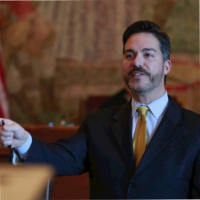Essex County, NJ RICO Act Lawyers
Sponsored Law Firm
-
 x
x

Click For More Info:
-
Cohen & Bernstein, L.L.C.
1360 Clifton Ave #309 Clifton, NJ 07012» view mapCriminal Defense We’re In this Together!
We work hand in hand with our clients to ensure all of your questions are answered and progress through your legal issue is seamless.
800-978-7341
Not enough matches for Essex RICO Act lawyer.
Below are all Essex Criminal lawyers.
Brian M. Dratch
✓ VERIFIEDAt Franzblau Dratch, P.C. we provide our clients with legal services in a comprehensive, yet cost effective manner, while at the same time reflecting ... (more)
John W. King
✓ VERIFIEDFull service law firm that specializes in Personal Injury, Auto Accidents, Slip and Fall/Premises liability, Dog Bites, Truck and Motorcycle Accidents... (more)
Albert Cernadas
✓ VERIFIEDAlbert Cernadas Jr. is the former First Assistant Prosecutor of Union County and Certified by the Supreme Court of New Jersey as a Criminal Attorney. ... (more)
Joseph John Donatiello
✓ VERIFIEDJoseph Donatiello was born and raised in Northern New Jersey and received his J.D. in 2009 from Rutgers School of Law in Newark. Following law school,... (more)
Christopher Raymond Fritz
✓ VERIFIEDIntroducing Christopher Fritz: A Resolute Advocate for Divorce and Family Law in New Jersey. In the realm of divorce and family law, one name stand... (more)
Timothy Edmund Burke
FREE CONSULTATION
CONTACTFREE CONSULTATION
CONTACT Lindsay Bernstein Clifton, NJ
Lindsay Bernstein Clifton, NJ Practice AreasExpertise
Practice AreasExpertise





